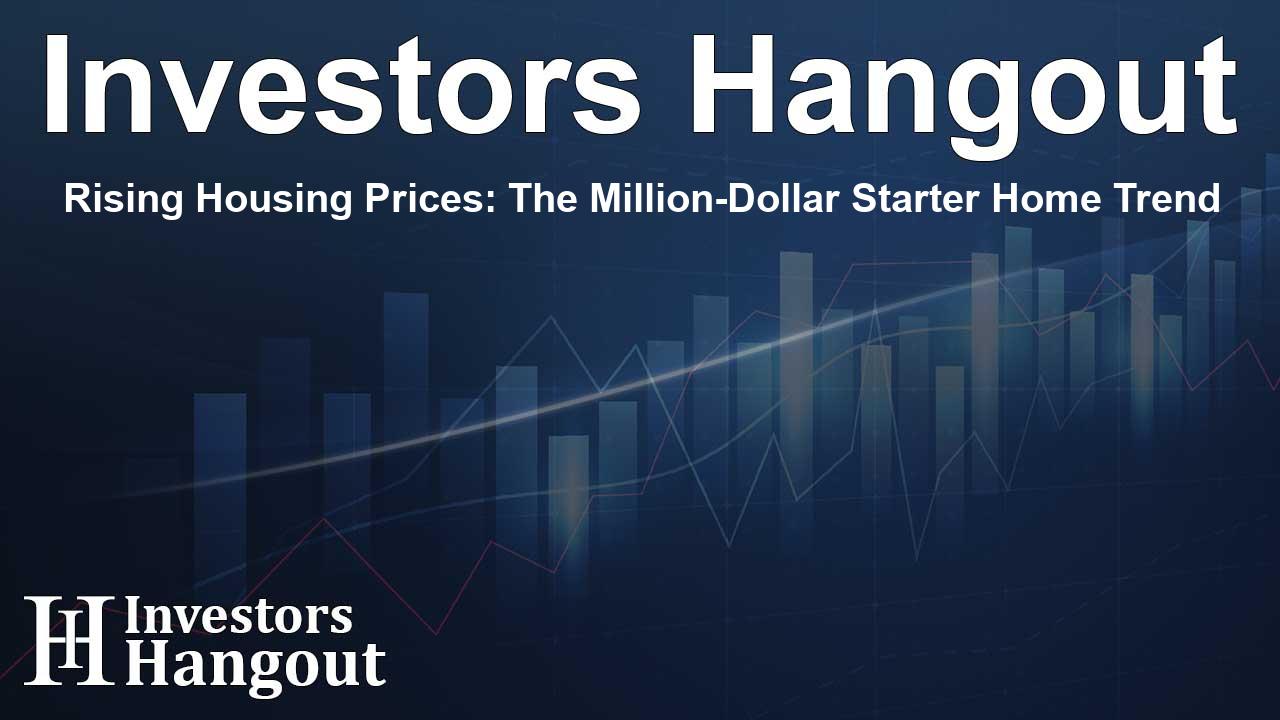Rising Housing Prices: The Million-Dollar Starter Home Trend

Understanding the Emergence of Million-Dollar Starter Homes
The real estate market has witnessed an extraordinary transformation over the last several years. A starter home, often viewed as an affordable entry into homeownership, now commands prices that evoke shock and disbelief. What was once considered attainable has morphed into a lofty ideal for many. The recent trends show that in 233 cities across the country, new buyers face an uphill battle as starter homes cost at least $1 million, a significant increase from just 85 cities five years ago.
The Statistics Behind the Price Surge
Data reveals that more than half of these cities reside in California, a state that has historically grappled with soaring real estate prices. In contrast, the average starter home price nationwide remains under $200,000, showcasing a stark contrast between affluent markets and more accessible locales. This wide gap presents a formidable challenge for first-time homebuyers aiming to secure affordable housing.
An Analysis of Market Trends
Despite the promising outlook suggesting a broader availability of homes due to increased market activity, the current inventory still presents a daunting reality for many. Senior economist Kara Ng from Zillow remarks, "First-time buyers are facing a market where prices that once seemed unimaginable have become reality." This highlights how challenging it is for young households to navigate their entry into homeownership.
Impact on Younger Generations
Many prospective homeowners are now delaying their first purchases, resulting in a growing median age of renters, which has risen to 42 years old. This shift has not only affected housing affordability but has also intensified the demand for rentals, causing prices for single-family rentals to rise. As buyers take a step back, rental markets continue to thrive, creating a unique landscape where renting becomes a preferred option over buying for many.
The Landscape of Million-Dollar Markets
California remains dominant in the number of cities with starter homes priced over $1 million. However, this market trend isn't contained within just one state — it now spans across half of the nation. Cities in regions like Minnesota and Rhode Island have entered the fray, illustrating that high-priced starter homes are becoming a national phenomenon.
Regional Insights and City Comparisons
The largest metropolitan area in the U.S. encompassing New York City has the highest number of cities where starter homes exceed the million-dollar mark, showcasing 48 such cities. Following closely behind are the San Francisco and Los Angeles metro areas, which also feature numerous million-dollar starter homes. Meanwhile, cities such as Miami and Seattle are not far behind in this unsettling trend, each having their share of expensive entry-level housing.
Strategies for Navigating the Market
For buyers trying to comfortably engage in such a competitive market, Zillow offers valuable insights through its advanced tools and resources. One of its notable offerings, the BuyAbility tool, caters specifically to help prospective buyers assess their financial capabilities concerning local housing costs. By providing tailored estimates, it equips users with information essential for making informed decisions in today’s complex housing market.
Rental Market Opportunities
As the housing market continues to present challenges, rentals stand out as an ever-appealing alternative. Zillow Rentals, with a far-reaching inventory, presents a critical resource for individuals seeking temporary living options. From single-family residences to apartments, the variety of choices highlights the different paths one might take while grappling with the heavy price of homeownership.
Conclusion: A Changing Housing Landscape
In conclusion, the surge in cities boasting million-dollar starter homes illustrates shifting dynamics in the real estate market. While affordability may have slipped from the grasp of many, tools provided by Zillow are here to help bridge the gap, offering new avenues for buying and renting alike. As we navigate through these changes, one thing is clear: the path to homeownership is evolving, and understanding the landscape is more important than ever.
Frequently Asked Questions
What is a million-dollar starter home?
A million-dollar starter home refers to a relatively basic home that costs at least $1 million, typically located in high-demand urban areas.
Which regions have the highest number of million-dollar starter homes?
California dominates the list, with other significant contributions from areas like New York and New Jersey.
How do market trends affect first-time buyers?
Current trends highlight challenges for first-time buyers, prolonging their journey towards homeownership due to high prices in many regions.
What tools does Zillow provide for homebuyers?
Zillow offers various tools, such as the BuyAbility tool, to help users evaluate their budgets and locate homes within their price range.
Are rentals becoming more popular due to high home prices?
Yes, many individuals are turning to rentals as home prices rise, leading to an increased demand for rental properties.
About The Author
Contact Logan Wright privately here. Or send an email with ATTN: Logan Wright as the subject to contact@investorshangout.com.
About Investors Hangout
Investors Hangout is a leading online stock forum for financial discussion and learning, offering a wide range of free tools and resources. It draws in traders of all levels, who exchange market knowledge, investigate trading tactics, and keep an eye on industry developments in real time. Featuring financial articles, stock message boards, quotes, charts, company profiles, and live news updates. Through cooperative learning and a wealth of informational resources, it helps users from novices creating their first portfolios to experts honing their techniques. Join Investors Hangout today: https://investorshangout.com/
The content of this article is based on factual, publicly available information and does not represent legal, financial, or investment advice. Investors Hangout does not offer financial advice, and the author is not a licensed financial advisor. Consult a qualified advisor before making any financial or investment decisions based on this article. This article should not be considered advice to purchase, sell, or hold any securities or other investments. If any of the material provided here is inaccurate, please contact us for corrections.
